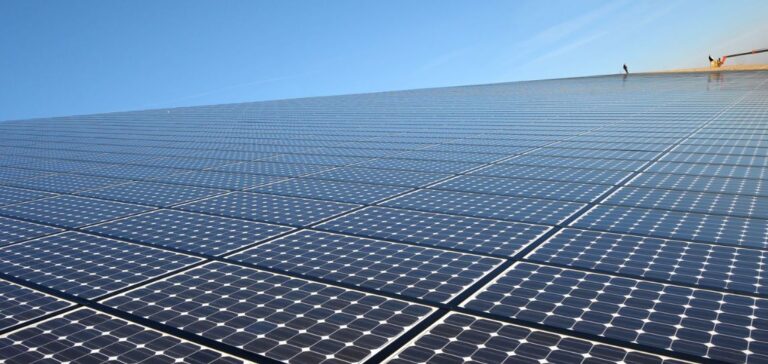Permionics, a company based in India, is setting up systems to manage the waste generated by the manufacture of solar panels.
Solar waste disposal
Permionics, a pioneering membrane technology company based in Gujarat wants to revolutionize solar energy. Indeed, the manufacturing of solar panels is a tedious and energy-intensive process. Major solar cell manufacturers are looking to integrate upstream and take control of their supply chain.
One of the main elements of this process is the solar wafer, which is made from silicon ingots. However, the production of solar wafers is a water-intensive process. To produce a single GW of wafer capacity, approximately 1 million liters of purified water are required each day.
This water, known as semiconductor grade water or 18Meg Ohm water, is the purest form of water. It requires a complex and expensive purification process. In addition to the large amounts of water required for production, the manufacturing process also generates waste in the form of chemicals.
These products are used to clean and etch the wafers. This waste requires careful treatment and disposal. In addition, many companies are looking for ways to recycle water to make the process more sustainable.
Political support
Permionics Group has mastered the integration of the processes required for total water and waste management in the solar wafer manufacturing process. It has years of expertise in this field, with several USP quality water systems. She had also been creating end-to-end management systems in the pharmaceutical industry for decades.
By using advanced unit processes and exotic materials, Permionics is able to make the process more environmentally friendly and sustainable. This is a revolutionary step in the preservation of the environment. In addition, the Indian government fully supports this revolution.
It plans to increase its domestic solar manufacturing capacity to 25GW of solar cells and modules. New Delhi also wants to increase capacity to 10GW of wafers by April 2023. Currently, India has a manufacturing capacity of 3GW for solar cells.
This capacity is 15GW for the modules. In addition, manufacturing zones for electrical equipment and renewable energy are being created. They will be located in coastal, mountainous and landlocked states.





















